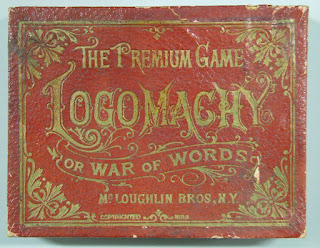[W]arn them before God that they are to avoid wrangling over words, which does no good but only ruins those who are listening. (2:14b, NRSV)"Wrangling," which makes Americans think of horses, may not be the best translation. Nor is the KJV's "strive," with its undertones of ambitious effort. We would prefer a more mundane "warn them against bickering over words."
This is good advice, especially in an Hellenistic context. Greeks were notorious in the ancient for their love of philosophical argument. They would talk a subject to death, it was commonly said, rather than kill it like men. Even Greeks themselves grew impatient with the endless hairsplitting that seemed to cast doubt upon the received wisdom of religion, family and nation. Hence Socrates' unfortunate final cocktail.
Theologians, who are first cousins to philosophers, have also been known to talk a subject to death, and extract from a close reading conclusions opposed to the "common sense" of the average hearer. For the most part, this is a good thing; the average hearer does not know what he is listening to. It is astonishing to us how many Christians manage to leave Sunday service, having spent an hour hearing the Prince of Peace blessing the peacemakers, convinced that Jesus wants them to kill Mooslims or build a wall against immigrants. The task of theology is to challenge sloppy religious thinking, and the first tool in its box is attention to the actual language of Scripture. Words matter.
But as any indulged child will admit after too long in an ice-cream parlor, one can have too much of a good thing. Many Christians, including some of the educated and articulate, tire of speculation that does not lead to action. Too much talk, or worse yet the wrong kind of talk, will douse the coals once lit by the Spirit. We have all seen it; indeed we see too much of it, as passionate believers begin to doubt that their belief has either a firm basis or a logical conclusion, and so slip away into the rolls of the "inactive."
 |
| A Greek warrior kills a centaur |
Do not be fooled by the appearance of playfulness. Greeks used -macevw combinations strategically, to tell a story about their deepest values. It was not always a very pleasant story, either. Two common tropes in Greek art are the "centauromachy" and the "Amazonomachy." Each shows the pitched battle and ultimate triumph of Greeks over their monstrous opposites -- beastly men and warlike women.
While we moderns may romanticize both centaurs (think of noble Firenze in the Harry Potter books) and Amazons (Wonder Woman, or any of a zillion other warmings-over of the Bachofen thesis), the Greeks were having none of it. Such things were monsters, the funhouse-mirror reflections of their own values: reason and masculinity. Their conquest, if only in art, was a victory for the self-image of Greek men.
 |
| Amazonomachy, from a Roman sarcophagus |
So what does it mean when Paul, or perhaps his slightly more Hellenized follower Pseudo-Paul, applies this rhetorical strategy to words, rather than horses or women? Perhaps the idea is to encourage Christians in a life of what is today called praxis: faith active in love, rather than in disputation and speculation. And the point is sharpened by all those Parthenon friezes; as pagans labored to defeat the temptations of brutishness and femininity, so we Christians must defeat the temptation to argue amongst ourselves over the fine print of our confession.


No comments:
Post a Comment